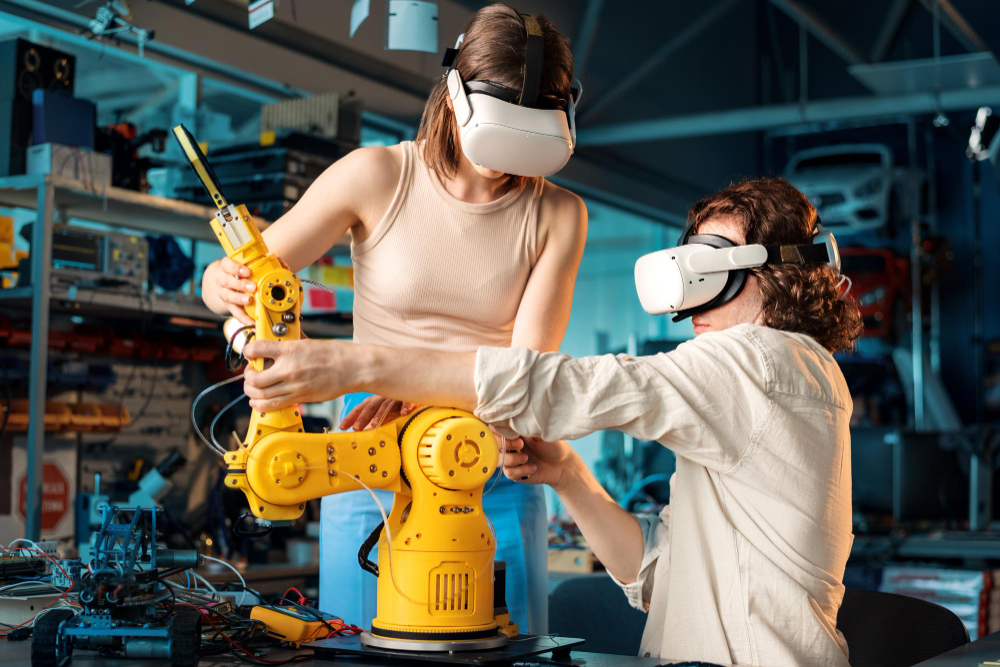17 September 2025 |
Collaborative robots, allies in the industry of the future
In many factories, robots are no longer kept apart: they share space with workers and take on monotonous or highly precise tasks. And if a person gets too close, they stop immediately to avoid any risk.
These are the so-called collaborative robots, or cobots, designed to work safely alongside humans. They can be installed in just a few hours, are easy to program, and adapt to new tasks without needing to be isolated. They relieve workers from physical or mechanical strain and allow them to focus on higher-value tasks.
Two manufacturers stand out in this field. Universal Robots has already sold more than 100,000 cobots worldwide. The company speaks of the democratization of automation, making it viable for SMEs and short production runs.
ABB was a pioneer in 2015 with YuMi, the first industrial cobot designed to collaborate safely with humans. That dual-arm robot symbolized the shift: from isolated automatons to workplace companions. Beyond technological innovation, ABB leverages its decades of experience in robotics to promote a more agile factory model, capable of quickly adapting production and responding to changing consumer demand.
Concrete examples show just how far this transformation goes.
In Japan, Toyota Industries uses a cobot together with a balancer—a mechanism that facilitates the handling of heavy materials—to manipulate raw materials. Previously, the task was performed using lifting equipment, but it required significant effort and posed risks to operators.
In the United States, Multiply Labs has developed a robotic system that automates laboratory processes to produce cell and gene therapies. The solution reduced costs by 74% and enables up to 100 times more doses per square meter of cleanroom space, with greater safety and sterility control than manual processes.
In Brazil, Electrolux has incorporated ABB cobots into its refrigerator manufacturing process. The company automated leak detection and electrical testing, achieving a 68% increase in productivity and greater safety for operators.
In Finland, Metos, —a manufacturer specialized in stainless steel equipment for professional kitchens—incorporated an ABB cobot into its welding area. Productivity increased by 30%, and the need for rework was reduced.
The industry of the future is being built today, with people and robots working side by side.


